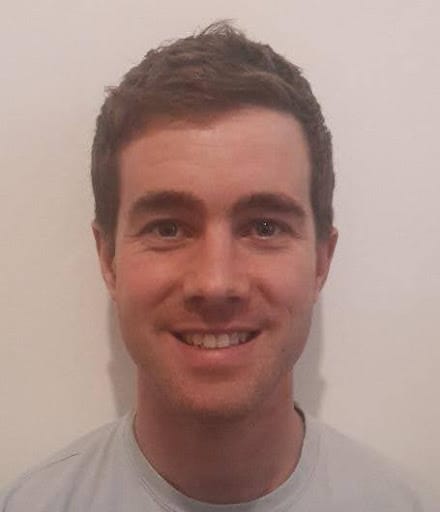A large proportion of patients presenting to acute medicine have some sort of infection, so you will put your specialist skill in infectious diseases to use on every ward round. More specifically you will gain experience in identifying and investigating more complex infections, and will be able to closely with infection specialists to manage these patients. In addition to this you will learn to manage the increasing number of returning travellers who present with suspected imported/tropical diseases to acute medicine. You will also be able to investigate and follow up patients with suspected infectious disease in an outpatient setting.
Ask an expert:
Richard Mayers – consultant in acute medicine in Harrogate District Hospital. Gained CCT in 2023 having completed training in West Yorkshire
What got you interested in Infectious Diseases?
I spent a year working in Uganda post FY2 so had experience of managing patients with ‘tropical’ diseases, though in a very different setting to the UK NHS. I continue to have links with a Ugandan hospital so these skills will be useful if/when I do more work there.
In CT1 I completed an infectious diseases placement in a large DGH, and found some of the patients (as well as the conditions they presented with) fascinating. They are not organ-specific so in that sense similar to acute medicine, however when I realised I could have the breadth and acuity of AIM, alongside a specialist skill in ID, I knew that was for me!

How did you train in Infectious Diseases?
I arranged a 6 month placement in infectious diseases in ST6 as part of my acute medicine programme (this involved finding a clinical supervisor in ID, and getting agreement from TPD). I remained on the general medicine on-call rota but spent my ‘normal days’ on the ID ward, clinic, or in-reach.
I completed the Diploma in Tropical Medicine (DTMH). I did this part-time through Sheffield University so it did not require any time out of training.
Throughout the rest of my AIM training I spent my specialist-skill sessions in a mixture of TB clinic, general ID clinic, and on microbiology ward rounds.
Were there any challenges?
It can be difficult to get specific ID experience whilst in a DGH. Get in touch with the microbiologists who will likely be very happy to have a clinician with them on ward rounds. Also contact respiratory who may organise TB clinics.
How does/will this fit into your consultant working?
Since becoming a consultant, I have been doing a general ID clinic once/week in the local tertiary hospital working alongside the infection specialists there. This allows me to continue developing my ID experience. In my DGH I will review or give advice on returning travellers and patients who present with potential unusual infections to SDEC or AMU. I am developing a service to manage and follow up patients with spinal infections, this may expand to a more general ID service in the DGH. My close links with infection specialists in the tertiary hospital are invaluable in this.
Do you have any tips for trainees who may be interested in Infectious Diseases?
Do a diploma in tropical disease (or similar) if possible. There are several part-time or distance learning options which are much more affordable than the full-time courses and don’t require time out of training.
Contact your local ID centre early in your training to discuss the possibility of a placement in your department (and get permission from your TPD). They will probably be delighted to have an acute medic working with them.
